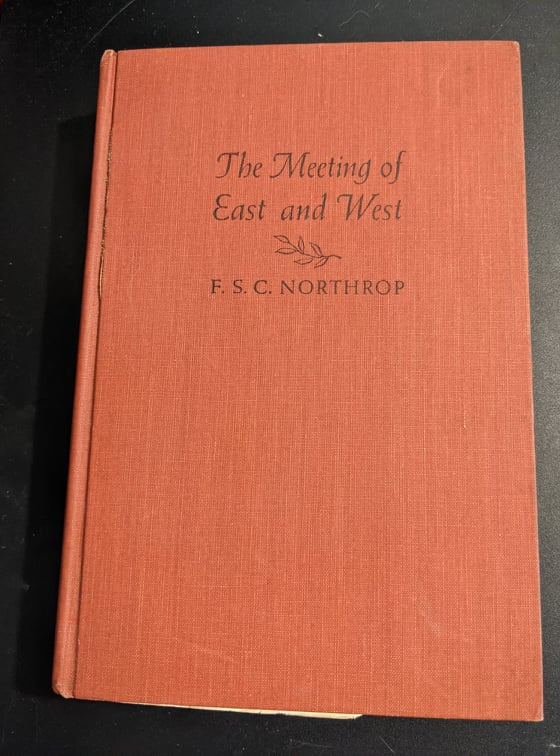As perspectivism — that we perceive as a perspective in the moment; each person can decide for themselves how the world is. It is then the argument of social reality of each. I do not see how direct realism is possible, however, our theoretical orientation cannot be simply stated (full-stop). There is not only mere opinion, but an egoism that finalises itself. An individual mind may be trapped in such a mundane force of inertia. And it seems most in the population are content to drift through life in the constant movement of such a direction.
There is one perspective, but then one more, and then another, and yet another…etc. In such a inertial movement, a chain of argument, as critical thinking, we then have a shared social reality. We agree that we do not perceive outside of self in the exact same way, but we all agree — except the very lonely and foolish contrarian — on the truthfulness of multiple perspectives. This provides the movement of understanding the world, others, and, flipping back in thought, of self. Some conclude in this movement that there is no self at all, or that self is only a bundle of passing thoughts, or self is a temporary state of affairs and the inertia will one day cease movement (inertia and then void). The deep arguments in the philosophy of mind does not matter much. There is a basic simplification to this inertial chain of thought: existence and the void. The basic point is we either engage the world, or retreat back into egoism.
If we choose to engage, then we each seeks an unity to the world, others, and self (whatever that state is). That is the philosophical challenge of our time (Lowenthal 2019, Merkus 2018). What ties everything together? There is another challenge in thinking on unity. Each scoping of thought is a unity. Bubble thinking of egoism is a unity. The Universe is a unity, but what we mean by universality is a scoping that is the completed unity — a scoping beyond all scoping. Bowden (2017) demonstrates that this is more often than not at the heart of political thought. Politics is captive to the concept of universal history.
The ignorance in the general population of the philosophy called, “unitarian-universalism” (Bumbaugh 2000, Grigg 2004, McKanan 2017, Skinner 1915) is palpable. There is an attitude in the population who wish not to know that our mundane thinking on unity and universality is a large body of philosophic understanding, and celebrated as a type of religion or spirituality, in the historic American organisation of the Unitarian Universalist Association, with organisations in the Anglo-American speaking world, and central Europe. There is no perfect unity and universality in such institutions, and, in fact, there are cracks of fragmented thought in these organisations as any other. The politics of egoism is the inertia. Institutions are not the point of reasoning, and here was Calvin’s fundamental error (Institutes of the Christian Religion, 1536).
The point is the philosophic thinking that gets us well-beyond egoism. The packaged philosophy of “unitarian-universalism”, as a community education, is not even the main point, but the process to a point of unity and universality. Without community education, an inertial movement in common learning, we are dooming the planet, containing ‘the world’, ‘others’, and ‘self’. Those who are the inertial resistant force are the contrarians who huddle in an obsession for the ‘Conspiratorial Force’ — accusing all others of a conspiracy which is a mirror image of their own.
The solution is obvious to those who understand the line of argument here. Change the direction of the inertia. Stop the conspiratorial movement, and begin the movement in inertial change to save and flourish the planet, containing ‘the world’, ‘others’, and ‘self’.
REFERENCE
Bowden, Brett (2017). The Strange Persistence of Universal History in Political Thought, Palgrave Macmillan.
Bumbaugh, David E. (2000). Unitarian Universalism: a narrative history, Chicago: Meadville Lombard Press.
Grigg, Richard (2004). To Re-Enchant the World: A Philosophy of Unitarian Universalism, The author, Xlibris.
Lowenthal, David (2019). Quest for the Unity of Knowledge, Routledge.
McKanan, Dan (edited, 2017). A Documentary History of Unitarian Universalism: Volume One, From the Beginning to 1899, Boston: Skinner House Books, and Volume Two, From 1900 to The Present, Boston: Skinner House Books.
Merkus, Edward (2018). The Idea of Unity, Arc Design.
Skinner, Clarence Russell (1915). The Social Implications of Universalism, Boston: Universalist Publishing House.
Featured Image: Copy of F.S.C. Northrop’s The Meaning of East and West, Macmillan, 1946.
Neville Buch
Latest posts by Neville Buch (see all)
- J. D. Vance’s Insult to America is to Propagandize American Modernism - July 26, 2024
- Why both the two majority Australian political parties get it wrong, and why Australia is following the United States into ‘Higher Education’ idiocy - July 23, 2024
- Populist Nationalism Will Not Deliver; We have been Here Before, many times… - July 20, 2024

